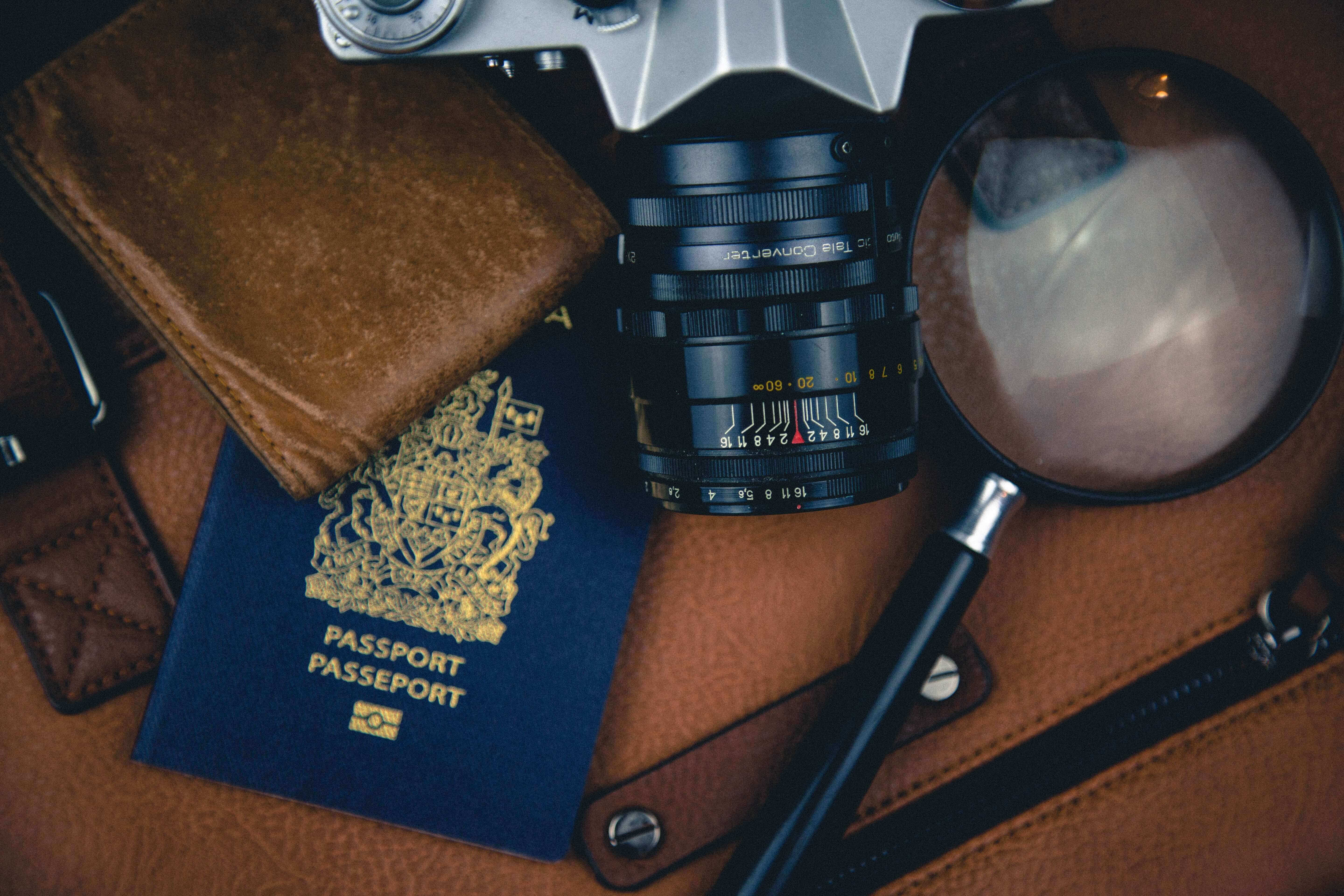What’s in a passport?
Passports have hit the headlines in recent months with the Home Office confirming that navy blue passports will be rolled out after Brexit to replace the current European burgundy ones; with immigration minister Brandon Lewis claiming that the move will “restore national identity”.
This raises the questions: what is in a passport? Is a passport key to patriotism and a country’s sovereignty? What does your passport say about your identity?
Jessie Kolvin (Passport: Canadian)
I never thought much about my British passport. The photo was certainly of concern, but the little book itself I took for granted. Only when I realised that I wanted to belong to a different nation did the concept of a passport begin to gather significance.
My mother is Canadian; I spent my childhood summers in Canada. As I grew older and became more aware of concepts of nation and identity, I wanted a physical manifestation of that heritage, some irrefutable proof that I was as Canadian as I claimed. My first major investment in my gap year was, therefore, a Canadian passport.
Only when I realised that I wanted to belong to a different nation did the concept of a passport begin to gather significance.
Leaving the Canadian Embassy in Trafalgar Square, I held a stiff, unremarkable book, which promised a quicker queue when arriving in Canada and a right to enter the United States without a visa. Most importantly, though, it gave me the right to live in Canada.
I may still have a British accent and count London (England, not Ontario) as my birthplace. But suddenly I was granted parity with Canadians. No longer would I be merely a visitor in the country I loved. I was one of their own .
I am exceedingly proud of that little blue book. It represents to me a sanctuary, a place I can escape to; and it reminds me that, wherever I am in the world, I can call Canada home.
Stephane Legrand (Passport: French)
Legacy, it is probably the very first word that comes to my mind when I think about my nationality. The particularity of my background has done a lot to forge this feeling; I am born from a British father and an Italian mother. From an early age, it resulted in myself being exposed to conflicts and relations between these countries; it further helped my identification as a “European-citizen”. Therefore, my passport bears the legacy of centuries of wars, millions of deaths and the responsibility to keep building and strengthening the relations within Europe.
My passport is the intercourse of a bloody and brilliant legacy used as a beacon to light the path in order to make this planet a better place.
When is see my French passport; I think Rousseau, Descartes and Thomas Piketty. I think about all these great minds which helped to shape the world we are currently living in and those who keep influencing it. Being French it’s advocating the ideas of the Enlightenments and furthermore, especially in a world suffering from growing divisions, blowing a new forward-looking and unity wind. Our responsibilities are enormous; my passport is the intercourse of a bloody and brilliant legacy used as a beacon to light the path in order to make this planet a better place.
Allons-y!
Axel Metz (Passport: British)
The British passport is an access key, a universally-recognised token of nationality for which I am very grateful, but does returning it’s cover and binding to a navy-blue colour “restore [my sense of] national identity”? No, it does not. Although, the immigration minister’s suggestion that it would do so is based on the presumption that my sense of national identity is lost in the first place – which it isn’t. I voted to remain in the EU in 2016, and yes, I think the outcome has definitely smeared the global image of Britain and damaged its relationships, but certainly not to the extent to which I consider my sense of national identity in jeopardy. I value my nationality as much as the next Briton, but my passport isn’t a fashion accessory that I flaunt to foreigners at the airport to make them jealous of its blue faux leather finish. Sure, I like the colour and welcome the change, but I object to the notion that the transition will add to what makes me feel British.
I value my nationality as much as the next Briton, but my passport isn’t a fashion accessory that I flaunt to foreigners at the airport
Chelsie Lee (Passport: Singaporean)
After accidentally spilling a can of Coke on passport the other day, I resorted to blowdrying it with my hairdryer with much immediacy. I thought about the value of a passport, amidst the transient paranoia of being denied entry for having a slightly damaged passport when I fly home this summer. Other than the light brown tinted edges of the pages that speaks a lot on behalf of my careless identity, are indications of the parts of the world I was able to experience with little trouble, reminding me of the perks of holding the world’s most powerful passport. Being able to go almost everywhere visa-free means two things in terms of my identity: the freedom and liberty to travel and experience; and holding citizenship to a country which possesses a secure and extensive network of foreign diplomacy.

Comments